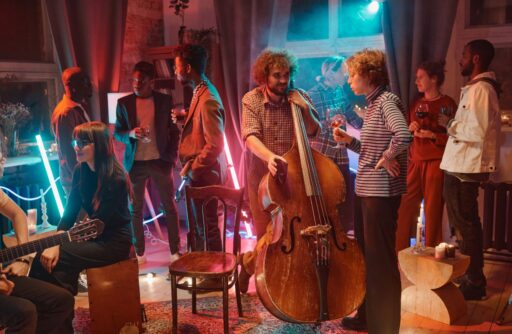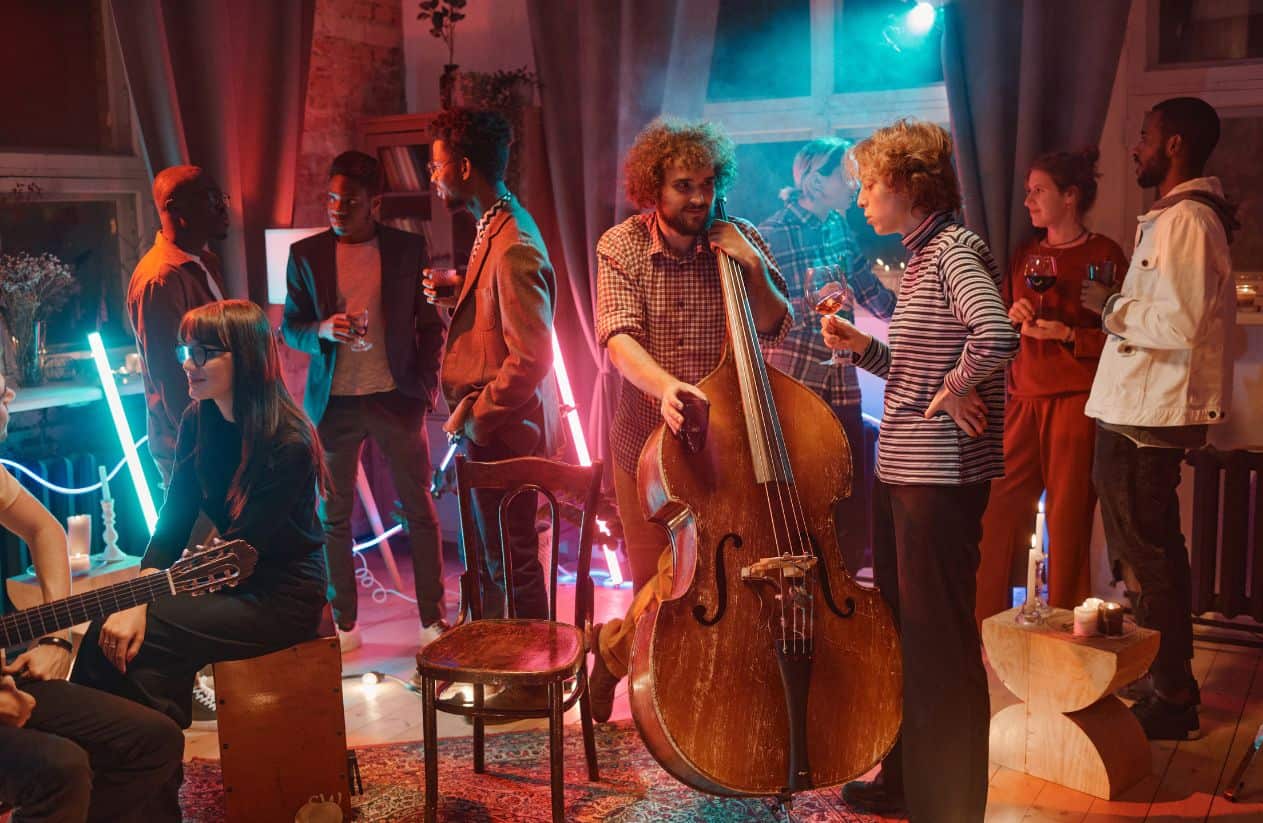Let’s talk Tips for Booking Live Performers, because a truly great performance can create event magic. You know that feeling when the energy just clicks? Chances are, a killer live performance was a big part of that. I’m talking about those moments where the music, the act, or the speaker just grabs you, and suddenly, everyone’s connected.
But let’s be real, getting to that magical moment isn’t always easy. Booking live performers can feel like navigating a maze. You’ve got to figure out who’s right for your crowd, haggle over costs, and make sure everything runs smoothly. It’s a lot!
That’s where this guide comes in. Think of it as your backstage pass to stress-free booking. We’ll dive into the art of effective communication—the real secret sauce to landing the perfect act.
We’ll break down how to negotiate like a pro and, even better, how to build relationships with artists that’ll make your future events even more amazing. This is your roadmap to booking live performers that will leave your audience buzzing.
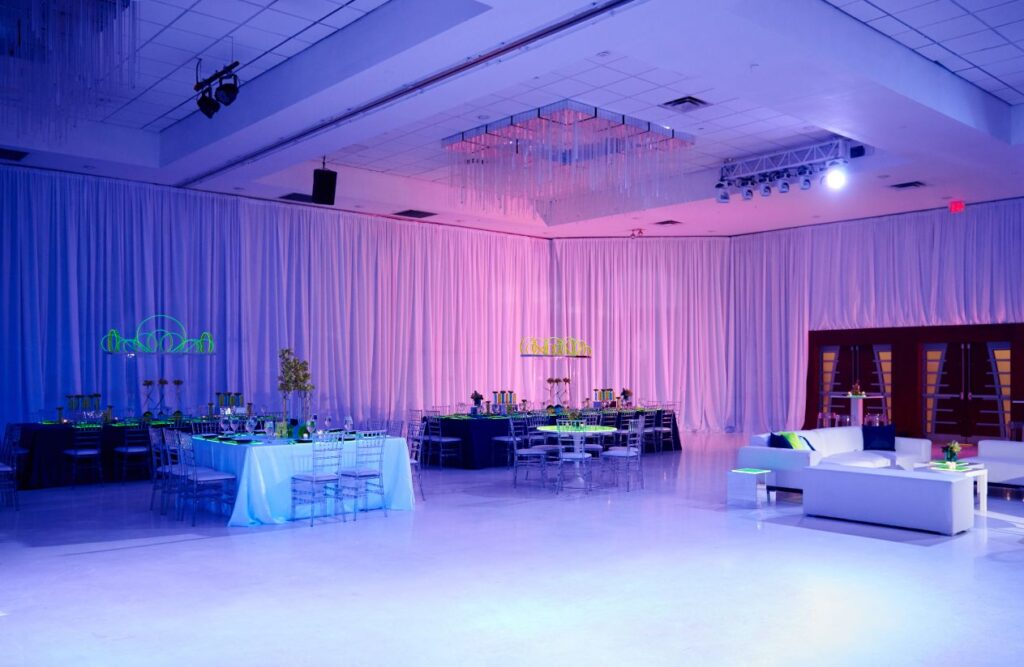
Alright, let’s get down to brass tacks. Before you even think about reaching out to performers, you’ve got to be crystal clear on what your event is all about. I’m not just talking about the date and time; I’m talking about the why.
Identifying Your Event Objectives
What’s the main goal here? Are you trying to:
- Entertain? (Party, festival, wedding)
- Educate? (Conference, workshop)
- Inspire? (Motivational seminar, awards ceremony)
- Celebrate? (Anniversary, milestone)
- Raise funds? (Gala, charity event)
The answer totally shapes the kind of performer you need. You wouldn’t book a heavy metal band for a poetry slam, right? Figuring out your core objective is the first, non-negotiable step.
Defining Your Target Audience
Okay, you know why you’re throwing this shindig, but who are you throwing it for? You need to get into their heads. Consider things like:
- Age: Are we talking Gen Z, Boomers, or a mix?
- Interests: What are their hobbies? What kind of music do they like? What makes them laugh?
- Cultural background: Are there any cultural sensitivities to be aware of?
- Socio-economic status: This can influence their expectations and preferences.
If you are booking live performers, and you nail this part, you’re already halfway there.
Defining Your Event’s Brand and Values
This is where we go beyond the basics. Your event isn’t just a random gathering; it’s a reflection of your brand or organization. What does your brand stand for? What are your core values? Do you want your event to be:
- Sophisticated?
- Energetic?
- Inclusive?
- Cutting-edge?
- Family-friendly?
The performer you choose should embody these qualities.
Creating an “Event Profile” Document
To keep all this straight, I highly recommend creating an “Event Profile” document. This is basically your event’s bible. Include everything we’ve talked about:
- Event name and date
- Objectives
- Target audience demographics and psychographics
- Brand values and personality
- Theme or style
- Budget
- Venue details (size, tech specs)
- Desired atmosphere
Finding the Right Performers: Beyond the Usual Suspects
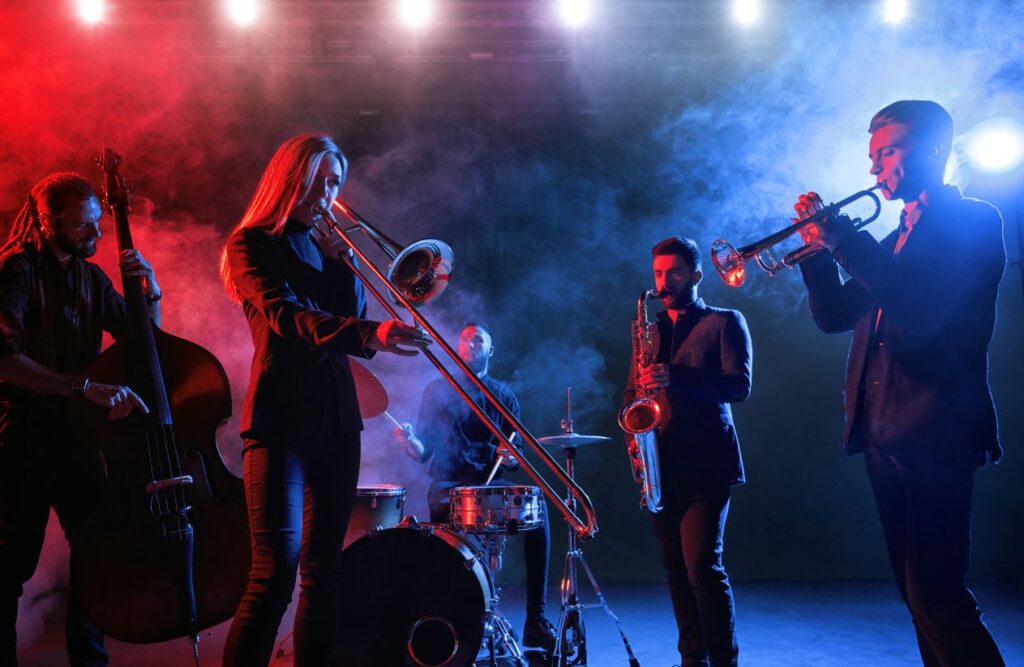
You’ve nailed down what you want your event to be. Now, the fun part: finding the talent to bring it to life! Forget just Googling “bands near me.” We’re going way beyond the usual suspects to uncover those hidden gems and seasoned pros that will make your event unforgettable.
Where to Find Amazing Performers
- Online Platforms:
- Pros: Huge selection, easy to filter by genre/location/price, often includes reviews and videos.
- Cons: Can be overwhelming, quality can vary, may have to sift through a lot of amateur acts.
- Examples: AGNT, The Bash, ReverbNation
- Talent Agencies:
- Pros: Vetted talent, professional service, handle contracts and logistics.
- Cons: Can be more expensive, less direct contact with the artist, may not represent niche performers.
- Industry Events:
- Pros: See performers live, network with industry pros, discover emerging talent.
- Cons: Requires travel and time commitment, may be geared towards specific genres.
- Examples: music festivals, showcases
- Networking:
- Pros: Personalized recommendations, build relationships with other event planners, discover local talent.
- Cons: Requires effort to cultivate connections, can be time-consuming.
Evaluating Performer Quality: Beyond the Hype
Don’t just rely on a flashy website! Here’s how to dig deeper:
- Reviews and Testimonials: See what past clients are saying, but take extreme reviews (both good and bad) with a grain of salt.
- Videos: High-quality live performance videos are a must. Make sure they showcase the performer’s energy, stage presence, and interaction with the audience.
- References: Ask for contact information for previous clients and actually follow up! Prepare specific questions about the performer’s professionalism, reliability, and ability to deliver.
Social Media as a Research Tool
Social media isn’t just for cat videos! It’s a goldmine for finding and vetting performers:
- Check their engagement: Are they interacting with their fans? Do they have a genuine following?
- Look for live videos: Even informal phone recordings can give you a sense of their live sound and energy.
- See what venues they’ve played: This can give you an idea of their experience and the size of the crowds they can handle.
Working with Diverse Performers
Your event should reflect the world we live in! Make a conscious effort to seek out performers from diverse backgrounds, including different ethnicities, genders, and sexual orientations.
This not only makes your event more inclusive but also exposes your audience to a wider range of talent and perspectives. When booking live performers, remember that diversity is key.
Trust me, having this document will be a lifesaver when you start talking to potential performers. It’ll keep you focused, help you communicate your needs clearly, and ensure you find the perfect match.
Related Content: Hiring a Bartender (Essential Tips for Your Event)
The Art of Effective Communication with Artists: Building Bridges, Not Barriers
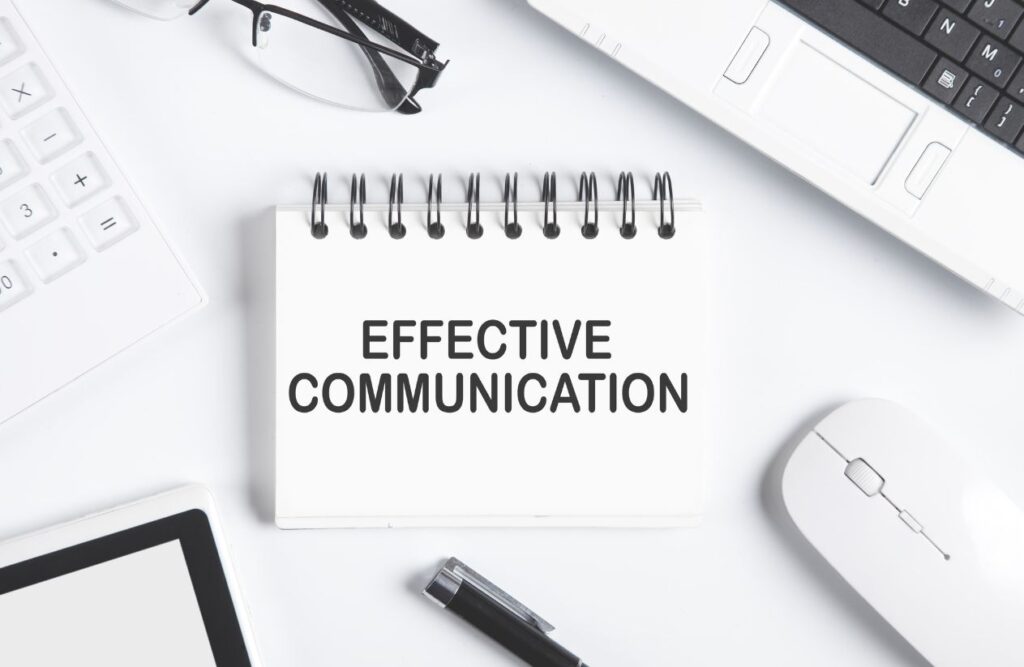
You’ve found some amazing performers. Now, let’s talk about how to connect with them in a way that sets everyone up for success. This isn’t just about exchanging information; it’s about building a solid foundation for a great working relationship. Mastering communication tips for booking live performers is absolutely essential.
Understanding Technical Riders and Personal Preferences
Think of a technical rider as the performer’s “must-have” list. It details everything they need to do their job, from stage size and lighting to sound equipment and power requirements.
- Example: A band’s rider might specify a stage that’s at least 20×15 feet, a certain type of sound system, specific microphones, and a drum riser.
Personal preferences are the little things that make the performer feel comfortable and respected.
- Example: Dietary restrictions (vegetarian, gluten-free), dressing room amenities, or specific brands of water.
Why does this matter? Because ignoring these needs can lead to a stressed-out performer, a subpar performance, and a damaged relationship.
Communicating Event Details: Clarity is King
Forget vague emails! You need to provide performers with a clear, concise, and comprehensive overview of your event. Here’s what to include:
- Event name, date, time, and location
- Event type and purpose
- Target audience demographics
- Performer’s role and set length
- Stage size, setup, and soundcheck schedule
- Payment terms and schedule
- Contact information for key personnel
- Template/Checklist:* Consider creating a standardized “Performer Information Packet” that you can send to every artist. This ensures you don’t miss anything and makes the process more efficient.
Maintaining Professionalism and Flexibility: The Key to Smooth Sailing
Professionalism means being prompt, respectful, and clear in all your interactions. It also means setting clear expectations and adhering to them.
Flexibility is equally important. Things change – flights get delayed, equipment malfunctions, and schedules shift. The best event planners can roll with the punches and find solutions that work for everyone.
- Conflict Resolution: When disagreements arise (and they will), focus on finding a solution, not assigning blame. Listen to the performer’s concerns, be willing to compromise, and document any changes in writing.
Utilizing Technology for Efficient Communication
Ditch the endless email chains! Modern technology can make your life (and the performer’s life) so much easier:
- Project Management Tools: Platforms like Asana, Trello, or Monday.com can help you organize communication, track deadlines, and share documents.
- Shared Documents: Use Google Docs or Dropbox to create shared documents that both you and the performer can access and update.
- Communication Platforms: Consider using a dedicated communication platform like Slack to keep all your conversations in one place.
Crafting Compelling Outreach Emails
Your initial email to a potential performer is your first impression, so make it count!
- Personalize it: Don’t send a generic blast. Mention something specific you admire about their work.
- Be clear and concise: State the purpose of your email upfront and provide the essential event details.
- Highlight the opportunity: Explain why performing at your event would be a good fit for them and what they’ll gain (exposure, networking, etc.).
- Include a call to action:* Tell them what you want them to do next (e.g., “Please send your rider and availability”).
Mastering Negotiation: Securing Win-Win Deals
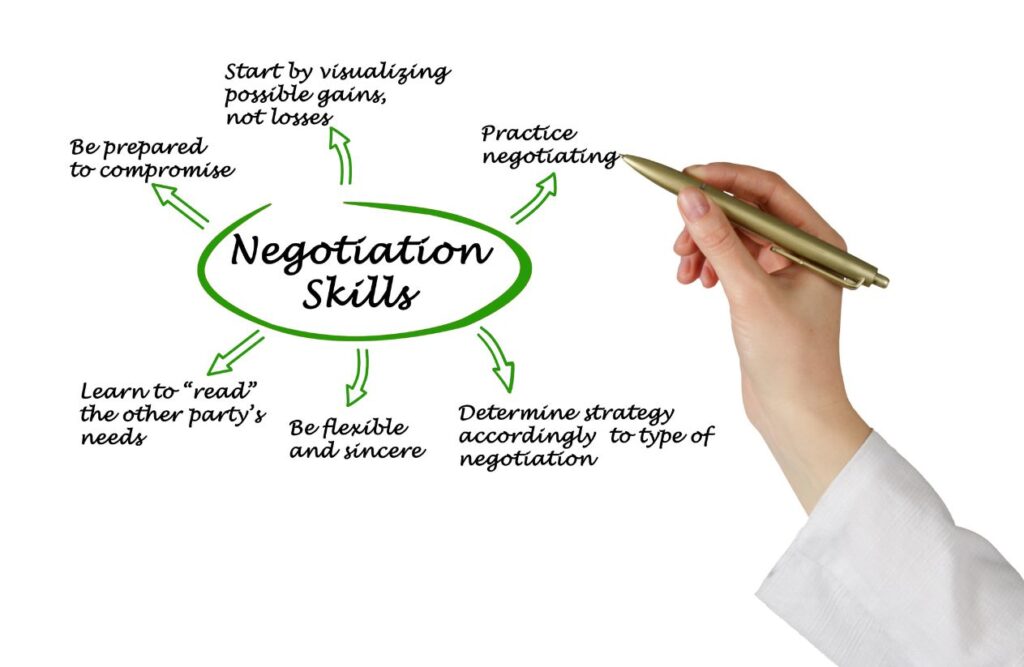
You’ve found the perfect performer; now comes the delicate dance of negotiation. Forget the image of cutthroat deal-making. The best negotiations, especially when booking live performers, are about creating partnerships where everyone walks away feeling good.
Researching Artist Fees and Market Rates: Know Your Numbers
Before you even start talking money, do your homework. This isn’t about lowballing artists; it’s about coming to the table with realistic expectations and understanding the value of what they bring. Here’s how to get the intel:
- Online Databases: Some platforms provide average fee ranges, though these can vary wildly.
- Agent Consultation: If you’re working with an agent, they’ll have a good handle on typical rates.
- Industry Publications: Trade magazines or websites may publish salary surveys or fee guidelines.
- Past Event Budgets: Look back at what you’ve paid for similar performers in the past (adjusting for experience, popularity, etc.).
Developing a Win-Win Negotiation Strategy: It’s Not a Zero-Sum Game
The goal isn’t to “win” and have the artist “lose.” That’s a recipe for a bad performance and a ruined relationship. Instead, aim for a win-win:
- Identify Your Must-Haves: What’s non-negotiable for your budget and event?
- Identify Your Wants: What would be nice to have but you can be flexible on?
- Understand the Artist’s Perspective: What are their needs and priorities? (Fair compensation, travel expenses, promotion, etc.)
- Find Creative Solutions: Can you offer something beyond money? (E.g., high-quality recordings, professional photos, social media shoutouts, future booking opportunities).
Communication Techniques for Effective Negotiation
- Active Listening: Pay close attention to what the artist or their representative is saying, both verbally and nonverbally. Ask clarifying questions.
- Framing: Present your offers in a way that highlights the benefits for the artist. (E.g., “This event will give you exposure to X demographic,” instead of just stating the fee.)
- Building Rapport: Be friendly, respectful, and professional. People are more likely to compromise with someone they like and trust.
- Clear and Concise Language: Avoid jargon or ambiguity. State your offers and expectations clearly and directly.
- Flexibility: Be prepared to compromise.
Handling Difficult Negotiations
Sometimes, negotiations hit a wall. Here’s how to navigate those tricky situations:
- Stay Calm and Professional: Don’t take it personally, and avoid getting into a shouting match.
- Identify the Roadblock: What’s the core issue? Is it money, creative control, or something else?
- Look for Alternative Solutions: Can you find a middle ground? (E.g., adjust the set length, offer a bonus for a longer performance, or find a sponsor to cover additional costs).
- Know When to Walk Away: If the demands are completely unreasonable, be prepared to politely end the negotiation.
Contingency Planning in Negotiations
Hope for the best, but prepare for the worst.
- Have a Backup Plan: Identify alternative performers in case negotiations fall through.
- Set a Deadline: Give negotiations a timeframe to avoid endless back-and-forth.
- Document Everything: Keep detailed records of all communication and offers.
You can also read our article about “Booking Entertainment for Events: Essential Tips and Tricks”
The Contract is Key: Protecting Both Parties

You’ve shaken hands (or exchanged virtual high-fives) on a deal – fantastic! But hold on a sec. Before anyone takes the stage, there’s one crucial piece of paperwork: the contract. Think of it as the rulebook for your performer relationship.
It protects both you and the artist, ensuring everyone is on the same page and minimizing the risk of misunderstandings or disputes down the line. When booking live performers, this is non-negotiable.
Essential Elements of a Performance Contract
A solid performance contract should cover these key areas:
- Parties Involved: Clearly state the names and contact information of the event organizer and the performer (or their legal representative).
- Performance Details:
- Date, time, and location of the performance
- Set length and duration
- Specific performance requirements (e.g., setlist, special requests)
- Compensation:
- Agreed-upon fee
- Payment schedule (e.g., deposit, balance due)
- Expense reimbursement (if applicable, e.g., travel, accommodation)
- Technical Specifications:
- Stage size, sound and lighting requirements (refer to the technical rider)
- Equipment provided by the venue/organizer
- Load-in and load-out times
- Cancellation Clause:
- Conditions under which either party can cancel
- Penalties or refunds in case of cancellation
- Merchandise Sales:
- Terms for selling merchandise at the event (if applicable)
- Commission rates or fees
- Intellectual Property:
- Ownership of performance recordings or photographs
- Usage rights for promotional materials
- Indemnification:
- Who is responsible for damages or injuries during the performance
- Force Majeure: Unforeseen circumstances
Legal Considerations and Potential Pitfalls
Contracts can be complex, and legal jargon can be confusing. Here are some potential pitfalls to watch out for:
- Vague Language: Avoid ambiguous terms like “reasonable efforts” or “satisfactory performance.” Be specific and detailed.
- Missing Clauses: Ensure all essential elements are included. A missing clause can leave you vulnerable in case of a dispute.
- Unrealistic Expectations: Don’t ask for anything that is impossible or unreasonable for the performer to deliver.
- Failure to Read the Fine Print: Both parties must read and understand every single detail of the contract before signing.
Insurance and Liability Clauses
Events can have unexpected hiccups. That’s where insurance and liability clauses come in.
- Event Insurance: Protects you against financial losses due to event cancellation, property damage, or injuries.
- Performer’s Insurance: The performer should have their own liability insurance to cover any accidents or damages caused by them or their equipment.
- Liability Clauses: These clauses in the contract specify who is responsible for what in case of an incident.
Understanding Force Majeure
“Force majeure” is a fancy term for events outside anyone’s control (e.g., natural disasters, pandemics, acts of terrorism).
- Your contract should have a force majeure clause that outlines what happens if the event or performance is canceled due to such circumstances.
- This clause should address issues like refunds, rescheduling, or alternative arrangements.
Building Lasting Relationships: The Key to Future Success

You’ve booked a killer act, the show went off without a hitch, and the crowd is buzzing. But don’t let the curtain fall on your relationship with the performer just yet! Nurturing these connections is one of the smartest things you can do for your future events.
Strong relationships, built on solid communication tips for booking live performers, lead to smoother bookings, better performances, and even exclusive opportunities down the road.
Recognizing an Artist’s Effort and Talent: It’s More Than Just Applause
Performers pour their hearts and souls into their craft, and acknowledging that effort goes a long way. Here are some ways to show your appreciation that go beyond the standard “thank you”:
- Be Specific in Your Praise: Instead of a generic “Great show!”, try something like, “The way you connected with the audience during that acoustic set was incredible. Everyone was captivated.”
- Highlight Unique Skills: “Your improvisational skills are amazing. That spontaneous song you created was a real highlight of the night.”
- Acknowledge the Behind-the-Scenes Work: “I know you had a tight schedule and a long drive to get here. We really appreciate your dedication and professionalism.”
- Personalized Thank-You Notes: A handwritten note or a thoughtful email goes a long way.
Staying in Touch: Keeping the Connection Alive
Don’t let the relationship go cold after the event. Here are some strategies for staying connected:
- Regular Check-Ins: Send a friendly email every few months to see how they’re doing, share industry news, or congratulate them on recent achievements.
- Social Media Engagement: Follow them on social media, comment on their posts, and share their content with your network.
- Holiday Greetings: A simple holiday card or e-greeting can keep you top-of-mind.
- Invite Them to Your Events (Even as a Guest): If you have another event, invite them to attend (if their schedule allows) even if you’re not booking them. This shows you value them as a person, not just a performer.
Building a Network of Trusted Performers: Your Event Dream Team
Over time, you’ll start to build a roster of go-to performers that you know you can rely on. This network is invaluable:
- Smoother Booking Process: You’ll already have established relationships, making negotiations and logistics much easier.
- Better Performances: Performers who feel valued and respected are more likely to go the extra mile.
- Exclusive Access: You might get first dibs on new acts, special rates, or exclusive performances.
- Referrals: Your trusted performers can recommend other talented artists who fit your needs.
Providing Constructive Feedback: Helping Them Grow, Strengthening Your Bond
Feedback is a gift, but it needs to be given thoughtfully:
- Be Specific and Actionable: Instead of “It was okay,” say “The pacing of your set could be improved. Consider adding a more upbeat song earlier on to build energy.”
- Focus on the Positive First: Start by highlighting what they did well before addressing areas for improvement.
- Be Kind and Respectful: Deliver your feedback in a way that is encouraging and supportive.
- Ask for Their Perspective: “What were your thoughts on how the show went?” This opens a dialogue and shows you value their opinion.
Cross-Promotion Opportunities: Helping Each Other Shine
A mutually beneficial relationship means finding ways to help each other succeed.
- Promote Their Upcoming Shows: Share their tour dates or new releases on your social media or website.
- Feature Them in Your Event Marketing: Include them prominently in your event promotions (with their permission, of course).
- Collaborate on Content: Create a joint video or blog post with the performer.
- Offer to Connect Them with Your Network: If you know other event planners or industry contacts who might be interested in their work, make the introduction.
Technology’s Role in Modern Booking
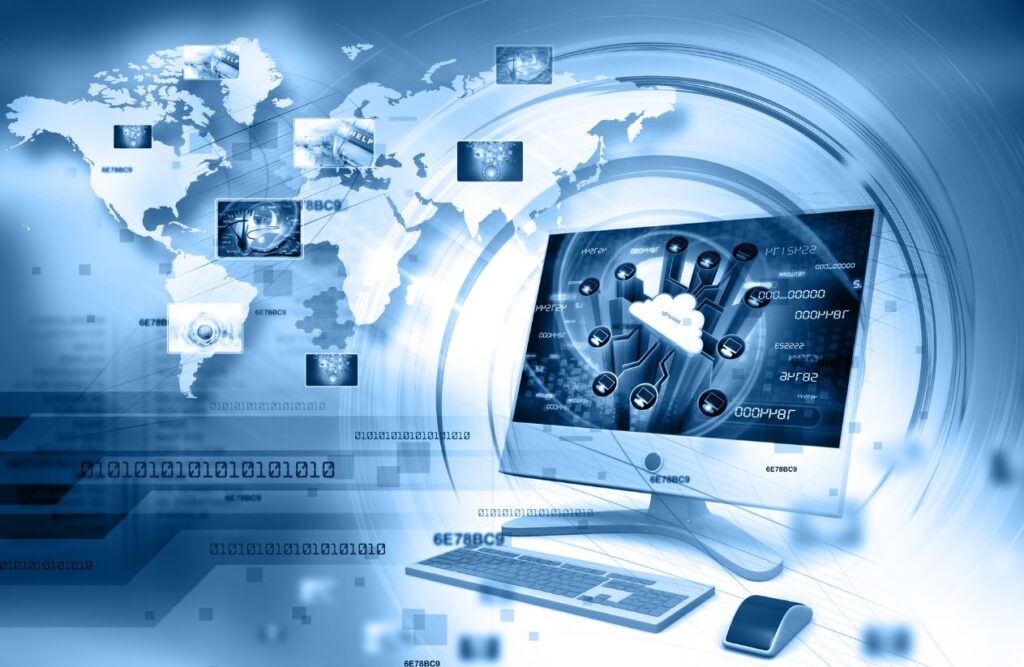
The way we find and book talent has changed dramatically. We’ve moved way beyond just flipping through phone books and relying on word-of-mouth.
Now, a whole universe of digital tools is reshaping how event organizers and performers connect. Let’s break down how technology is changing the game.
How Technology is Changing the Game
- Digital Platforms and Marketplaces: Websites and apps are now central hubs where you can discover a massive range of performers. You can filter by genre, location, price, and availability, making the search process much more efficient.
- Virtual Showcases and Auditions: Video conferencing and live streaming have made it possible to “see” performers in action without traveling. This saves time and money and opens up access to talent from all over the world.
- Online Reviews and Ratings: Platforms often include reviews and ratings from past clients, providing valuable social proof and helping you make informed decisions.
- Project Management and Communication Tools: Apps and software help streamline the booking process, from initial contact and contract negotiation to managing logistics and payments.
Tools for Finding, Vetting, and Managing Performers
Here are some examples of tools that event planners are using:
- Gig marketplaces: (e.g., The Knot, GigSalad) Connect you with performers for various events.
- Social media: Platforms (YouTube, Instagram, etc.) serve as a search engine for talent, and a place to see their work.
- Artist management software: (e.g., Backstage) Helps manage auditions, submissions, and communication with talent.
- Communication and collaboration tools: (e.g., Slack, Asana) Help organize the booking process.
Pros and Cons of Using Technology
Like anything, there are upsides and downsides:
- Pros:
- Increased efficiency: Quickly find and compare a large number of performers.
- Wider selection: Access talent from anywhere in the world.
- Greater transparency: Reviews, ratings, and online portfolios provide more information.
- Streamlined process: Digital tools simplify communication, contracting, and payment.
- Cons:
- Impersonality: Relying too much on tech can make the process feel less personal.
- Information overload: Sifting through endless online profiles can be time-consuming.
- Potential for scams: You need to be cautious about verifying the legitimacy of performers found online.
- Technical issues: Glitches or software problems can disrupt the booking process.
Conclusion: Your Journey to Booking Excellence
We’ve covered a lot, from setting the stage to signing the contract and building bridges with performers. Remember, successful booking live performers isn’t just about logistics; it’s about people. It’s about clear communication, finding those win-win deals, and creating relationships that last beyond a single event.
This guide is your toolbox, packed with the strategies and insights you need to navigate the world of live entertainment. I hope you’ll put these tips into action, whether you’re planning a small corporate gathering or a massive festival.
Now, I want to hear from you! What are your biggest booking challenges? What successes have you had? Share your stories and questions in the comments below.
Mastering the art of booking live performers takes time and effort, but the rewards are immense. You’ll create unforgettable experiences, build a network of incredible talent, and elevate your events to a whole new level.
Are you looking for a performer to hire for the event? we have something for you, Below is the list of our most recommended live performers that you can book or hire:
Tips for Booking Live Performers- FAQ
When planning an event, booking live entertainment often comes with its set of challenges and questions.
Understanding these concerns is crucial for a seamless planning process. Below are some frequently asked questions addressed to help guide you through the intricacies of arranging live entertainment for your event.
How Far in Advance Should I Book the Entertainment?
The sooner, the better! Ideally, book 4-6 months ahead of your event. Popular acts may need even longer notice. Last-minute bookings are sometimes possible, but your choices will be fewer and the prices may be higher.
What Kind of Entertainment Suits My Event?
It depends on your crowd, the event’s theme, and your budget. What would your guests love – a band, DJ, magician, something unique? Don’t be afraid to ask your entertainment provider for suggestions that fit your specific needs.
How Do I Handle Technical Requirements for Live Entertainment?
Performers will usually have a ‘rider’ listing their needs (lighting, sound, stage setup). Review this carefully and discuss any items you can’t provide. You may need to rent equipment if your venue doesn’t have everything required. Make sure the venue, the performer, and any rental companies coordinate to ensure the setup is perfect on the day.
Understanding and addressing these common concerns upfront can significantly enhance the booking process, ensuring both you and the entertainer are on the same page. This preparation allows you to focus on creating a memorable experience for your guests with the perfect live entertainment choice for your event.
